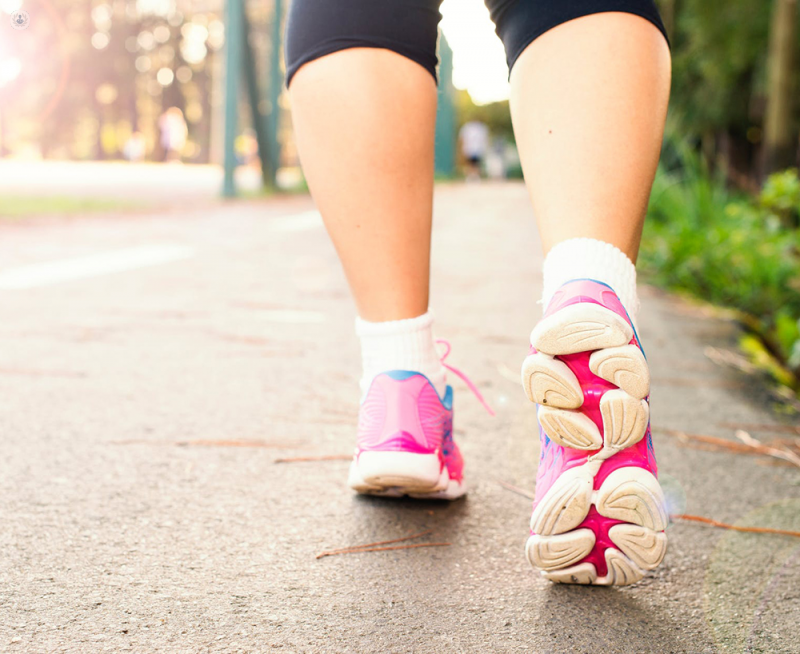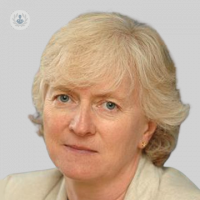How to take care of your leg health
Written by:Every day, thousands of people’s quality of life is devastated by the lack of support and advice on the prevention of lower leg and foot conditions, such as varicose veins or blocked leg arteries, and the failure to correctly diagnose and treat them. This also includes non-healing wounds of the leg and foot. Good quality lower leg and foot care can promote healing and reduce the risk of harm from such conditions.
As a vascular surgeon with a special interest in legs, one of our leading consultants Ms Sophie Renton knows how important this is. Here Ms Renton gives her top tips on how to look after your legs in order to prevent or treat any problematic veins or arteries.

Why do our leg’s health matter?
Our legs and feet do a lot for us but often they don’t get the attention they deserve. It’s really important that we keep an eye on our lower legs and feet. Even the smallest change to the way they look or feel can be a sign of something more serious.
Here are some of the things to look out for:
- Swelling
- Sores, ulcers or wounds that are not healing
- Tired, throbbing and painful legs
- Visible varicose veins
- Reddish-brown staining above the ankle
- Cramp or pain after walking
- Hot, inflamed and tender skin.
These symptoms could mean you have an underlying vascular problem that could be treated. Do ensure that you seek an expert opinion.
How you can keep your legs healthy?
Here are my tips on how you can keep your legs healthy:
Look after your skin
- Moisturise daily with an unscented moisturiser
- Check your skin for breaks, cracks or swelling
- If a wound is slow to heal seek advice.
Keep moving
- Try to walk regularly – ideally for about 30 minutes a day (at least)
- If walking is difficult, move your feet round in circles
- Avoid standing for long periods.
Keep healthy
- Keep your weight down
- Stop smoking
What are the symptoms and signs of vein problems?
Swelling, tired throbbing and painful legs, reddish-brown staining above the ankle, and hot inflamed and tender skin at the ankle are all symptoms of varicose veins even if you don’t have visible varicose veins.
These symptoms may indicate that you are at risk of developing an ulcer. If you have varicose veins, any wound on your leg is likely to be slow to heal and become a venous leg ulcer.
If you do develop an ulcer, treating your varicose veins will speed up ulcer healing and reduce the time you will need special dressings. Fortunately, varicose veins can be treated quite simply as a day case, usually under local anaesthetic.
What are the symptoms and signs of an artery problem?
If you get pain in your calf, thigh or buttock when you walk, you could be suffering from intermittent claudication. This is a pain in the muscle which feels like a cramp. It resolves quickly when you stop walking but comes back after you walk again. It is due to a narrowed or blocked artery in the leg.
When should I seek advice?
If you are concerned about your legs and have some of the symptoms I have described, you need a vascular assessment. In my clinic, I can assess for both arterial and venous disease and offer advice on treatment options in just one visit.
At the Clementine Churchill Hospital, I have excellent tissue viability nurses who can offer wound care, ulcer care and advice on compression devices.
If you would like to discuss your symptoms of leg pain with Ms Renton, you can book an appointment with her via her Top Doctor’s profile here.


